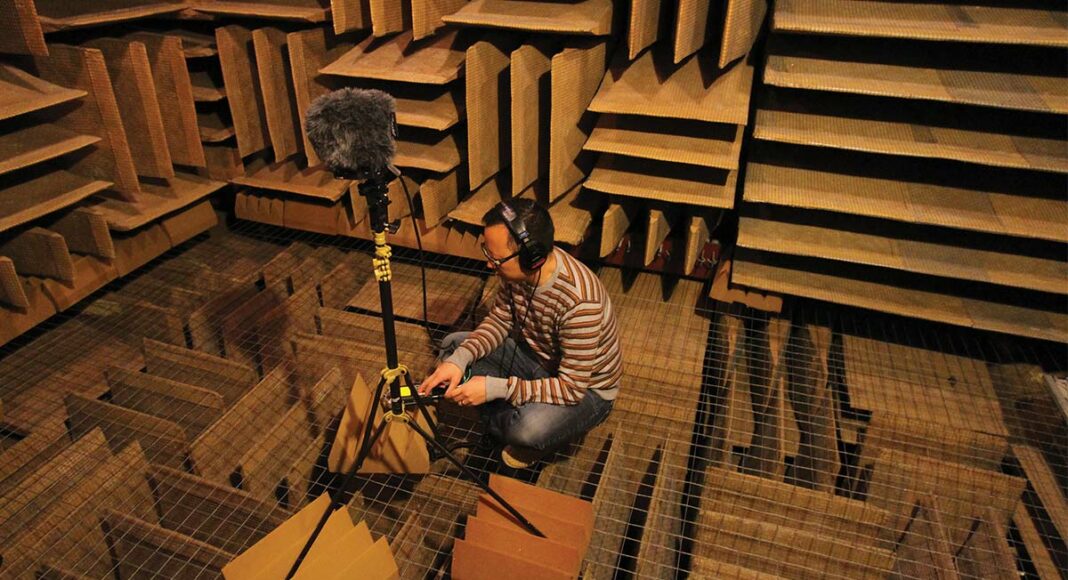“I lose track of physical time,” says artist Emily Tayman of her experience in an isolation tank in Santa Barbara. “More than once I’ve completely lost the sense that I am in my body. I am in a conscious dream state … There are no sounds to distract you from getting to this space; you are in your own complete world.”
From headphones that block out a wide range of external noise to silent rooms and retreats to a new isolation tank center, Equilibrium, opening in Seabright on Sept. 1, people are taking extreme measures to experience silence. Though it’s hard to find and is sometimes uncomfortable, it has proven medical benefits, too.
In 2013, an article published in the journal Brain Structure & Function revealed the positive, regenerative effects that silence had on the brains of rats. Initially intended to be a study of how rats react to music and different sounds, the silent segments—which were used as a control between each sample—produced the most profound responses from the subjects. During these episodes of silence, the hippocampus region of the brain (the part of the brain associated with memory, learning and emotion) saw a greater development in cell production.
The research also concluded that subjects experienced more relaxation in silence before and after the calming music than while it was playing.
“We saw that silence is really helping the new generated cells to differentiate into neurons, and integrate into the system,” says Imke Kirste, a regenerative biologist at Duke University.
The research on silence builds on what we’ve long known about its inverse: Epidemiologists conducting the 1960 study that coined the term “noise pollution” discovered a relation between high blood pressure and overexposure to noise. They suggested that exposure to chronic harsh sound increased the potential for sleep loss, tinnitus and heart disease.
So then, is silence simply the absence of noise? Imagine going to the most remote place you can think of: even there, you will still encounter sound of some kind—and even if you were to find a place where nearly everything is inaudible, is it possible to turn off the music or sounds created in your head?
“There isn’t really such a thing as silence,” says Robert Zatorre, a sound neurologist. “In the absence of sound, the brain often tends to produce internal representations of sound.”
More and more research shows that even when we find a silent space, our brain begins to fabricate sound from memory. In our most quiet moments, our brain switches from a state of gathering and stimulation to one of processing and reflection.
“Freedom from noise and goal-directed tasks, it appears, unites the quiet without and within, allowing our conscious workspace to do its thing, to weave ourselves into the world, to discover where we fit in. That’s the power of silence,” writes Daniel A. Gross in a 2014 Nautilus article “This is Your Brain on Silence.”
Therefore, if we spend the majority of our day distracted and focussed on a chronic rush of sound, we do not allow for our brain to develop and interpret our experiences. We do not give ourselves time for the brain to fit itself into the world.
“I do believe that sensory deprivation is the closest gateway to complete silence of mind and external stimuli that I have gotten,” says Tayman of the isolation tank. “It’s revitalizing, cleansing, and gives a sense of euphoria. I find myself much more sensitive to music after a float, it becomes enhanced and each note and beat is recognized. This may be from the deprivation of the senses, giving them a time and space to completely relax—heightening your senses by cutting them off for a given moment of time.”
For more information on Equilibrium Float, set to open on Sept. 1 at 543 Seabright Ave., Santa Cruz, visit equilibriumfloat.com.













